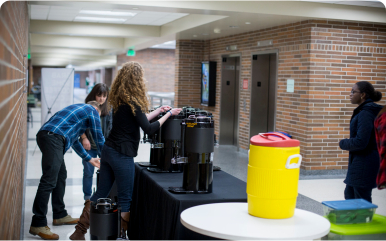January 16, 2015
All About Forgiveness

[intro]I struggle at times in my ability (and willingness) to forgive others for offenses I feel they have committed toward me. Yet, at the same time, I am so thankful that God has made His forgiveness toward my sin so available and actual as it really is.[/intro]
But, when I choose to not forgive others as God has forgiven me, I question whether or not I truly understand and live out the reality of what took place when God forgave me.
See, my beliefs about God’s forgiveness as it relates to me personally has a direct correlation to my ability and willingness to forgive others. I have found that this issue permeates and affects my relationships like none other.
It is not uncommon for people to either not understand how God has already forgiven us or how much He forgave us, or not understand how to practically apply this truth in our relationships with other people.
Let me start with this:
Why do we need forgiveness?
Well, the reality is that we have sinned against a holy and righteous God. Each of us has alienated ourselves, and God has chosen to offer complete and total forgiveness to each of us as a result of the sacrifice Jesus made for us. He offered His sinless life for the lives of sinners. That’s us. Our sin had consequences. That consequence was death and eternal separation from God.
See, God just doesn’t look the other way when it comes to our sin. We cannot break the rules and expect to get away with it. Jesus paid the price Himself for that consequence. Done. Finished. Undeserved. Unearned. That is why we read in Romans 1:18 “And He is entirely fair and just in this present time when He declares sinners to be right in His sight because they believe in Jesus.”
In spite of our sin, and the consequences we deserved, and because Jesus paid the price for our sin, the result is that we are able to be forgiven. Past – Present – Future. Our sin was a big deal. We were guilty – condemned. But Jesus chose to extend forgiveness to us when we did not deserve it.
Why do we need to forgive others?
Why is this so important to understand in our struggle to forgive others? Well, this is why:
The more we see the seriousness of our own sin before God, the less the sins of other people committed against us will bother or control us.—Ray Pritchard, The Healing Power of Forgiveness
In comparison to what God already has forgiven us for, those offenses that others commit against us are in reality trivial. Right?
Someone once stated, if we would only learn to be more repulsed by our own sin than we are at the wrongs others commit against us, we would be well on the road to spiritual health and learning to forgive others. On one hand, we urgently need forgiveness. On the other hand, we desperately need to forgive others.
I like what C.S. Lewis said: “Every one says forgiveness is a lovely idea, until they have something to forgive.” I like that. It rings so true for me.
Our attitude about forgiving others can vary depending on which side of the situation we find ourselves on. When we are on the “receiving end” (we have sinned against someone) we think: Why can’t they let it go and forgive me? But, when we have been wronged (someone sins against us) we often feel that forgiveness is a violation of fairness and justice. We feel that by offering forgiveness, we are minimizing their actions. Right? We want them to understand the magnitude of what they did. But the reality is this: they may never fully understand that.
How do we forgive others?
So, how do we go about forgiving others? Paul offers some good insight into how we can do that:
Be kind to each other, tenderhearted, forgiving each other, just as God through Christ has forgiven you.—Ephesians 4:32
“Just as” means “in the same way.” In fact, this is not just a nice idea or good suggestion. It is a command. We can forgive others—when we understand just how much God has forgiven us. That is the foundation that allows us to forgive. We can forgive—because God has forgiven us.
Read through Matthew 28:21-35 and Luke 7:47. Here’s the deal. From Jesus’ teaching in these passages, we as Christ followers ought to be the most forgiving people on the planet because we have been forgiven (and should understand forgiveness). For a Christ follower to be willfully unforgiving is unthinkable. It is a contradiction in terms. Not only should we be, but we can be. It goes back to understanding God’s grace and the very forgiveness He has provided to us.
See, God will never ask us to forgive someone else more than He already has forgiven us. Our willingness and ability to forgive others for the wrongs they have committed against us is in direct proportion to our remembering and believing how much we have already been forgiven by God.
So, this is such an important truth for us to grasp and apply to our lives. We will need to know and understand and apply this over and over and over again.
And, we can do so because of what we are told in Colossians:
You must make allowance for each other’s faults and forgive the person who offends you. Remember, the Lord forgave you, so you must forgive others.—Colossians 3:13
Let us all endeavor to immerse ourselves in the forgiveness God has so graciously offered to us—and then graciously offer this same forgiveness to others.
Image Credit: Damian Gadal
Quick Links
- Connect
- Prayer
- Give
- Life Group Material
- Serve





























